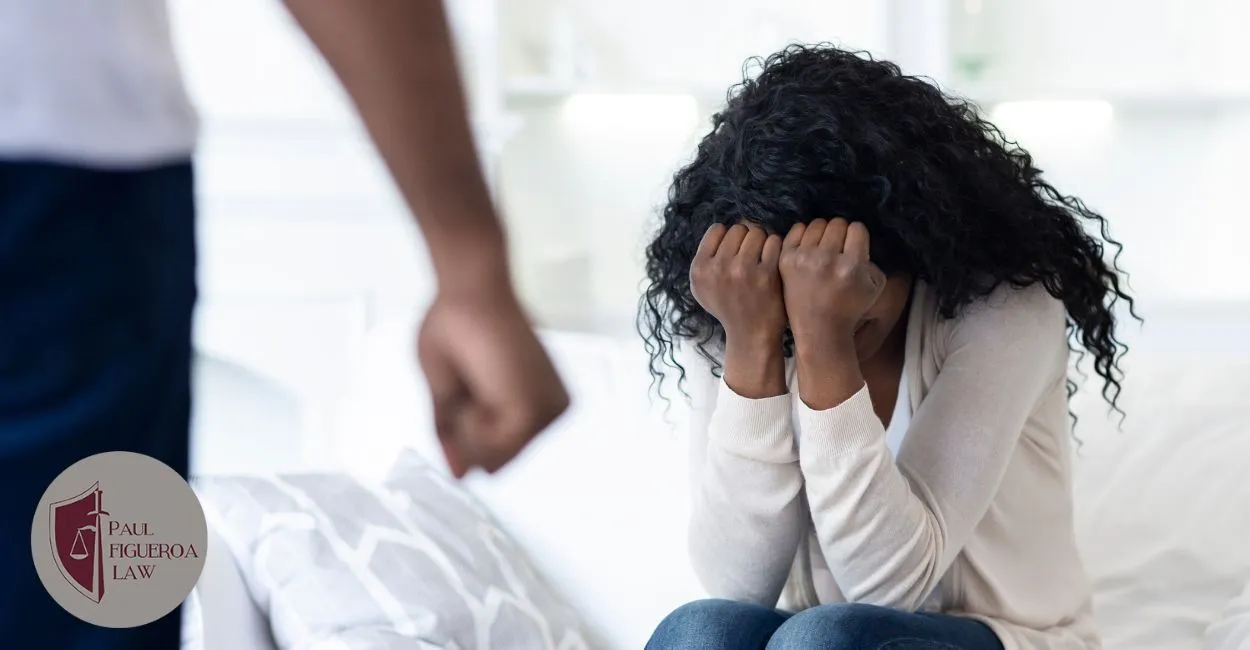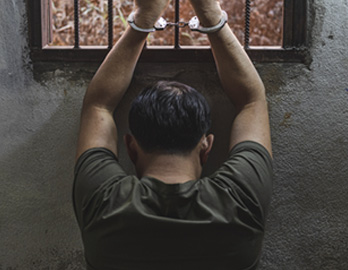Tampa Domestic Violence Defense Attorney
Tampa Domestic Violence Defense lawyer

Thousands of domestic violence cases are filed each year. Domestic violence can have many different appearances, making it a difficult crime to clearly define. This results in ambiguity that could result in you being overcharged or even incorrectly charged with domestic violence. If you have been charged with domestic violence, a Tampa domestic violence defense attorney may be able to help you.
Why You Need a Tampa Domestic Violence Lawyer
Being charged with and convicted of domestic violence can come with severe, life-altering penalties. There are legal penalties as well as social consequences that can drastically impact your life. We know that the law can sometimes be confusing and intimidating. We can help you understand your rights as well as assist you with the legal defense you will need for your case.
At Paul Figueroa Law, we have represented thousands of clients and helped them fight their cases and defend their rights. We will fight for you and handle your case with care as you navigate this difficult time.
What Is Considered Domestic Violence in Florida?
In Florida, domestic violence is defined as an assault from one person to another family member or person living in the same household. Assault covers the following offenses:
- Assault
- Battery
- Aggravated (causing an injury) assault or battery
- False imprisonment
- Kidnapping
- Sexual assault
- Sexual battery
- Stalking
- Any other act that resulted in the physical injury or death of another
It is considered domestic violence if any of these acts were committed against someone in the same household or in the same family as the offender. The law determines the following relationships to be within the same household or family:
- Current or ex-spouses,
- Relatives by blood or marriage,
- A group of people living together as a family, or
- Two people who have a child together, regardless if they were married at the time of birth or conception or not.
All of these groups, with the exception of two people who have a child together, must now or previously have resided together in the same home.
Examples of Domestic Violence
Domestic violence can cover a range of actions. The most common is domestic battery. Domestic battery is a very broad term and is defined as an act of violence, willful or otherwise, done to another person. If the act resulted in physical injury, it is classified as inflicting corporal injury. Some examples of these include:
- Hitting
- Slapping
- Punching
- Pushing
- Shoving
- Kicking
- Biting
- Choking
There are other acts that could be classified as domestic violence, even if the act itself was not a direct violent contact between the two parties, but one party was put in harm’s way. Some examples of this include not allowing a person to seek medical care or help from law enforcement.
This could also include other acts that are meant to terrorize the other person, such as keeping them locked in a room or car and refusing them to leave or abandoning them in a dangerous or unfamiliar place.
There are other forms of domestic violence, as outlined by Florida law, that may or may not be initiated with a violent act but instead puts the person’s life in jeopardy where they reasonably believe that violence can occur. Examples include:
- Stalking: Stalking is a form of harassment when a person is in fear for their safety. Typically speaking, a person who does the stalking has no legitimate purpose to contact the one they are stalking other than to terrorize them.Stalking can include sending unwanted gifts. It also includes following a person to their home, job, or recreational activities. If a person constantly calls, texts, emails, or otherwise contacts a person excessively, this could be considered stalking as well.
- False Imprisonment: False imprisonment is holding someone against their will. In a false imprisonment a person has confined, captured, trapped or prevented someone from leaving. If a person is held at a person’s home or other establishment and is not allowed to leave, they are being falsely imprisoned.
- Sexual Abuse, Assault, and Battery: Sexual abuse occurs when a person is forced to perform or engage in sexual acts against their will.This covers a number of instances, including forcing one to engage in sexual acts with a person or third party, restraining someone during sex with the purpose of forcing them to comply, committing violent acts during sex without consent (such as punching or choking), or demanding sex, especially with the threat of physical punishment if denied.
- Kidnapping: In Florida, a person has committed kidnapping if they abduct another person against their will with the intention of holding them for ransom, holding them as a hostage, inflicting harm or terrorizing the person, interfering with a political or governmental function, or committing another felony with the person in their possession.
Domestic Violence Penalties
Even an arrest for Domestic Violence can cause a lasting impact to the accused. Domestic violence allegations have collateral consequences not only to the individual’s reputation but also may restrict their ability to maintain their employment. An example of this is licensed medical professionals. Medical professionals, such as doctors and nurses who are employed in a facility that accepts Medicare or Medicaid may be prohibited from practicing while the criminal allegation is pending. In addition, the individual accused of domestic violence may be ordered to have no contact with their accuser, be ordered to vacate their home, and ordered to surrender any firearms that they may have.
In Florida, being convicted of domestic violence comes with severe penalties. First, the offender must serve a minimum of one year on probation. During this time, the offender must attend a batterers’ intervention program, as required by law, unless the court determines that such program is inappropriate.
If the perpetrator of the domestic violence action intentionally caused bodily harm to another, the person must serve a minimum of ten days in a county jail unless they are given a sentence that requires them to serve time in a state correctional facility under Florida Statute 741.283. The minimum sentence is enhanced to fifteen days on a second offense and twenty days on a third or subsequent offense.
Additional penalties include paying fines, performing community service, and mandatory counseling. In Tampa, the severity of penalties depends largely on the offender’s criminal history, the circumstances of the crime, and the severity of the crime. It is likely that the harshness of the penalties will increase for multiple charges in a single event or if the offender is a repeat offender.
If someone has claimed to be the victim of domestic violence, they have a right to file an injunction, or order of protection, against their alleged abuser. If you have been served an injunction, it is important to follow the statutes laid out in it, even if you have not yet gone to court to defend the domestic violence claims.
Violating an injunction comes with its own penalties, and it is considered a misdemeanor. Breaking the order of protection could result in you facing up to a year in jail. If a person continues to harass another after they have been served with an injunction, they can be charged with aggravated stalking, which is a felony and can carry up to five years in prison as well as a $5,000 fine. In addition to these criminal penalties, a person who suffers injuries as the result of the violation of the injunction may be awarded economic damages. These economic damages can include attorney’s fees and cost for enforcement of the injunction.
Defenses in a Domestic Violence Case
Proving domestic violence can be hard. This is especially true if there was a mutual fight that occurred between the involved parties. Domestic violence situations are typically not recorded, and they are not as simple as providing paperwork to prove what happened. Therefore, it can often turn into one person’s word against another’s. Building a strong defense can help ensure the truth comes out. Some common defenses in a domestic violence case include:
- The person acted in self-defense. There are instances where the person being charged with domestic violence acted in self-defense but has less obvious physical proof (such as bruising or scarring) of an altercation that occurred than their accuser.
- The other person has an ulterior motive. Sometimes a defendant may argue that their accuser is lying or has fabricated the allegation in order to seek revenge for an unrelated reason or they want to otherwise damage the accused’s reputation or impact their livelihood in some other way.
- The act was an accident. A person can argue that the alleged violence was completely unintentional. An example of this would be if someone was in an argument and was walking out of the house and slammed the door behind them and the other individual tried to grab the door causing their hand to be caught in the door. If the individual had no intent to cause the door to close on the other person’s hand, then they could argue that the requisite intent to touch or strike the other person was not there.
Do I Need a Domestic Violence Defense Lawyer?
If you have been charged with domestic violence, it is highly recommended that you hire a lawyer to represent you. Domestic violence cases are not easy to handle, so you will need a lawyer who knows the law well and can build the most effective defense for your case. A Tampa domestic violence defense attorney will look at the facts of the case and help to build your defense.
A domestic violence defense lawyer is aware of your rights and can make sure they are defended in court. If there are children involved, an injunction can affect your relationship and time spent with your children. It can also affect your acquired portion of shared property. Hiring a lawyer can help you maintain your rights, relationships, and assets during this time.
A skilled domestic violence defense lawyer will handle your case with knowledge and care while you work towards maintaining your quality of life.
Contact a Domestic Violence Lawyer Today
Each domestic violence case is unique. Every outcome is different depending on the circumstances and individuals involved. Paul Figueroa Law has the legal knowledge for these types of cases. We can handle the legal side of your situation, so you don’t have to. We can help fight for your rights and ensure that your interests, concerns, and desires are heard. If you have been charged with domestic violence, contact us today for more information.









